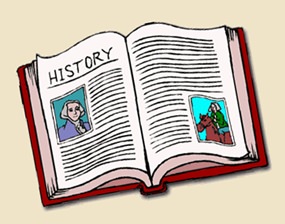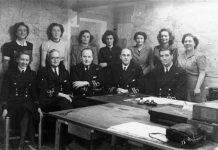Today is Saturday, Dec. 26, the 360th day of 2015. There are 5 days left in the year.
Highlights in history on this date:
1492 – Explorer Christopher Columbus founds a European settlement on the island of Hispaniola.
1793 – French victory at Weissenburg forces allies to retreat across the Rhine River.
1799 – George Washington is eulogized by Col. Henry Lee as “first in war, first in peace and first in the hearts of his countrymen.”
1805 – Peace of Pressburg is signed between France and Austria.

1827 – Turkey’s Sultan Mohammed II rejects right of allies to mediate in war with Greece.
1865 – American inventor James H. Nason receives patent for the coffee percolator.
1901 – The Uganda Railway from Mombasa to Lake Victoria is completed.
1917 – During World War I, the U.S. government takes over operation of the nation’s railroads.
1938 – Pan American Conference approves Declaration of Peru against all foreign intervention.
1941 – As Japanese forces approach, the United States declares Manila, Philippines, an open city; Winston Churchill becomes the first British prime minister to address a joint meeting of the U.S. Congress.
1956 – Twenty-one African Americans are arrested in Birmingham, Alabama, for riding in the “white” sections of buses during a mass defiance of laws requiring separation of the races on public transportation.
1962 – Eight East Germans escape to West Berlin by crashing a bus through barriers at border checkpoint.
1977 – Argentina’s government announces a holiday amnesty, freeing 432 political prisoners of the 3,607 being held under a state of siege imposed in March 1976.
1984 – Nicaraguan defense minister reports a death toll of at least 5,600 people in the fighting between government troops and U.S.-backed contras rebels.
1989 – Forces loyal to the Romanian communist government begin surrendering as a videotape aired on television shows the bloody bodies of executed
leader Nicolae Ceausescu and his wife, Elena.
1991 – Algeria holds its first multiparty parliamentary elections since independence from France in 1962.
1992 – Yugoslav Prime Minister Milan Panic concedes defeat in Serbian presidential elections and congratulates the incumbent, hard-liner Slobodan Milosevic.
1994 – Assault by French commandos in Marseille ends a three-day hostage drama as four Algerian hijackers who commandeered an Air France jetliner are killed.
1997 – French far-right politician Jean-Marie Le Pen is convicted of denying Nazi crimes after he said the gas chambers were a “historic detail” at a Munich news conference.
1998 – Khmer Rouge leaders Khieu Samphan and Nuon Chea, considered to be among the architects of the group’s genocidal reign in the 1970s, surrender to the government.
2003 – An earthquake rocks the Iranian city of Bam, 980 kilometers (610 miles) southeast of the capital Teheran, killing 50,000 people and destroying 90 percent of the city’s residential area.
2004 – Massive tsunami triggered by earthquakes tears across the Indian Ocean, devastating coastal communities in 12 countries, killing at least 216,000 people, and leaving more than a million people homeless.
2007 – A ruptured gasoline pipeline explodes in flames, killing at least 34 people near Nigeria’s main city of Lagos.
2009 – Israeli troops blast their way into the homes of three wanted Palestinians, killing each in a hail of bullets and straining an uneasy security arrangement with Palestinian President Mahmoud Abbas.
2011 – A Nigerian Christian association demands protection for its churches after at least 35 people die at St. Theresa’s church and dozens more are wounded as radical Muslim militants launched coordinated attacks across Africa’s most populous nation.
2013 — African leaders try to advance peace talks between South Sudan’s president and rival factions he accuses of attempting a coup to topple the government of the world’s newest country.
2014 — President Vladimir Putin signs new military doctrine declaring NATO to be Russia’s No. 1 threat.
Today’s Birthdays:
Charles Babbage, English mathematician and inventor of first computer (1791-1871); George Romney, English artist (1734-1802); Henry Miller, U.S. writer (1891-1980), Mao Tse-tung, Chinese leader (1893-1976); Leopold Mannes, U.S. co-developer of Kodachrome film (1899-1964); Alan King, U.S. comedian (1927-2004); Abdul ‘Duke’ Fakir, U.S. rhythm-and-blues singer (1935–); David Sedaris, U.S. humorist/author (1956–).
Thought For Today:
A fool and his money are soon parted, but you never call him a fool till the money is gone — Anonymous.
Copyright 2015 The Associated Press. All rights reserved. This material may not be published, broadcast, rewritten or redistributed.




